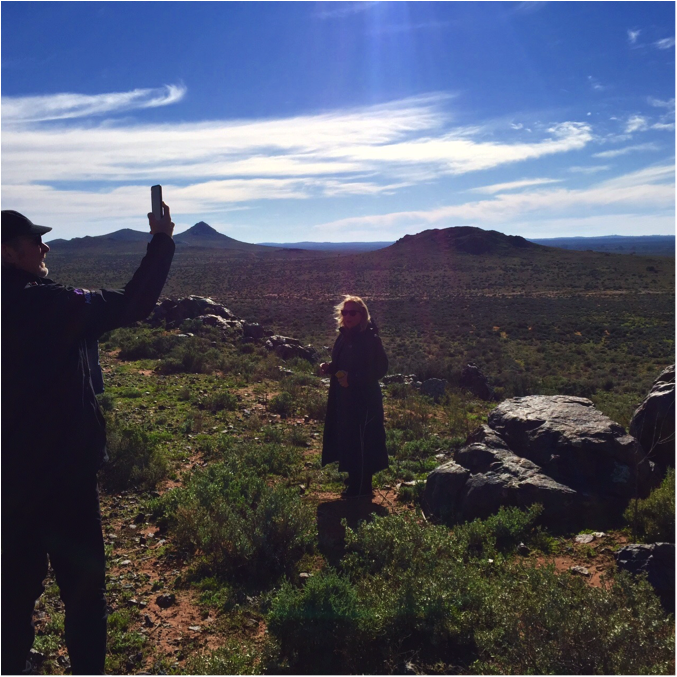
- Industry
Mimi Leder: A Pioneering Life
There is nothing left over about the executive producer/director-showrunner of HBO’s Leftovers. As the first woman graduate of AFI, Mimi has been quietly shattering glass ceilings her whole career. Back in 1998 when it wasn’t that common to have a woman helming movies, never mind a sci-fi disaster film, Mimi directed Deep Impact. It had the biggest opening weekend ever for a movie directed by a woman. So why is it that in 2017 the world is holding its breath for the opening of Wonder Woman, another tentpole summer blockbuster, helmed by a woman? Don’t look to Mimi for answers.
“I think the reticence (in giving women this kind of film to helm) is idiotic. There is nothing a woman cannot direct. You have to find the right director for each film or television show. Very few women have been entrusted to direct high stakes, big-budget, studio films. I directed one of the highest grossing films ever, with Deep Impact, in 1998, when tickets were eight bucks. On a non-holiday weekend it made $41.7 million and over $350 million worldwide.” She laughs ironically and a little proudly. So why aren’t more women directing studio tentpole films? “If women are not given the opportunity –.” She lets the sentence hang.
“The fact is that there are several male directors who are fresh off helming small indie films or who have little or no experience, yet are getting hired for big tentpole films. Why? Is it because of gender? White male privilege? I think so. It makes no sense to me that untested men are hired over women with more experience. Women always have to prove themselves. I think its crazy. I think its insanity, but we are finally getting the chance and more opportunities will follow.”
“The world is not gender-blind and maybe one day it will be. I don’t really have the answers as to why men are hired over women. Maybe because they look like each other. A white guy with a baseball cap hiring another white guy with a baseball cap. Does it feel safer? All I know is you do good work, you persevere, you have no fear, and you just have to keep moving.”
‘Keep moving,’ could be her mantra. Leder’s follow-up film was Pay It Forward (2000). “Pay it Forward is certainly part of the American vernacular today, but it was a flop,” she owns forthrightly. “I went to movie jail.” Part of holding pioneer status – being one of the first to break through a barrier – as a woman, is that you get held to a different standard. Guys can weather underperforming at the box office, but if a woman’s film doesn’t find an audience it becomes about her gender.
“When dissecting a male director’s success or failure, it is never discussed in terms of whether he brings his male point of view to a picture. Of course I bring my femaleness to the party. I am a woman. But what I really bring is my uniqueness as a human being. My director’s eye, vision and visual sensibility. My love of light. ‘It’s my sensibility. One of the things that has hurt woman directors is to separate us and hire us for our ‘female’ sensibility instead of hiring us for the work we do. We are directors. Period. It’s bullshit that women are perceived as less capable.”
Yet it doesn’t prevent women from being treated as less capable. “I got my first directing job, on Hill Street Blues, only, it was not my first directing job.” Mimi explains the oxymoron that involves, as it turns out, a real life moron. “I was a script supervisor on the show, trying to become a director, so I made and directed my own short. Steve Bochco and Greg Hoblit saw it and hired me to direct an episode of Hill Street Blues. We signed the contract, but then Steve and Greg left to create L.A. Law. The new producers fired me before I ever got a chance to shoot the episode. They said it was because I was not qualified to direct.” This despite the work that had got her the contract in the first place. But they immediately hired their first AD, a man, to direct the show, who had never directed, and never went on to have a career directing. That was a devastating blow to my first break, my first directing job. After that I got pregnant with my daughter.”
Once Hannah was born, Leder went to visit Hoblit and Bochco with her three-week old daughter on her hip. Their belief in her ability was unaltered. L.A. Law had been developed and they asked her to direct episode 19. The enormity of the offer in the face of what had happened, still colors her words. Her big break was happening with a three-week old in her arms. Given the fallacy that women leave when they have children, Mimi could have easily deferred the offer. Instead, she weaned her daughter and with engorged breasts, set about directing her first television episode.
“The point is I never gave up.” She notes. Not at having her contract broken because she was a woman. Not at being locked in movie jail because women are held to a different standard, and not trading motherhood for a career when getting her chance to direct. “I believed I could have both. My mother is a survivor of Auschwitz. She never gave up. She is alive today and is going to be 95. We grew up with a family that never gave up in the face of doors being shut.”
The Emmy Award winning director (for an episode of E.R.) has gone on to an illustrious career in television. She is credited with giving The Leftovers its vision, when she came on board midway through Season One. Mimi excels at bringing intimacy to epic tales. She can more than handle the CGI and the action, but when other directors discuss what a character is doing, “I often want to discuss what a character is feeling.” “My biggest assets are my heart and brain. I use the emotional side of my brain. My long and varied career has given me the strength to never stray from what is genuinely the right instinct to move forward with.”
Before concluding our telephone interview, I ask Mimi Leder what it’s like to be the sole woman, as she has often been, in a field where men are the preferred choice. There are so many ways the reply could go, but she chooses lightness and humor. “Well, when there were just a few of us, you used to have the bathroom to yourself.”
With the conclusion of The Leftovers, Mimi is back directing film. On the Basis of Sex, starring Natalie Portman, is the true story of the early years of Supreme Court Justice, Ruth Bader Ginsburg. It focuses on Ruth in 1970, taking on and winning the first two cases that declared discrimination on the basis of sex, unconstitutional. The twist is that her client is a man. It is a genuinely smart, wonderful script, written by Daniel Stiepleman, her nephew. Until that release, you can see her work on the final season of The Leftovers, which airs Sunday nights at 9pm PT/ET on HBO.


